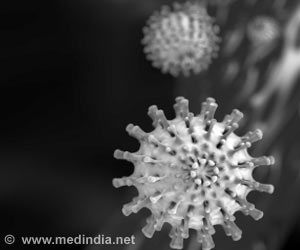Highlight:
- A research team from Wistar Institute has developed a DNA vaccine which was found to increase the immune response of the host
- The altered sequences of DNA found in the vaccine marked the cancer antigen as foreign
- The increased immune response aided in better therapy for cancer with no side effects
Cancer Immunotherapy
There are two types of antigens that are carried by cancer cells, self-antigens as well as cancer associated antigens. The presence of these cancer associated antigens enable the cancer cells to be recognized as foreign by the body’s immune system, mounting an attack by T cells. The antigens that are expressed by the cancer cells are- Self-antigens are expressed in large numbers by cancer cells than in normal cells, which results them in being viewed as foreign.
- Self-antigens which are not expressed by the cells in a tissue are regarded as foreign by the immune system.
- Antigens that are expressed as a result of gene mutations that give risk to cancer and which have not been previously seen by the immune system.
Genetic Changes in Cancer Cells
There are genetics changes in cancer cells that result in the loss of cancer associated antigens. This results in the evasion of the host’s immune system. The growing cancer may be perceived as a threat by the immune system but it may still escape a strong immune attack from the host.DNA Vaccines-Cancer Immunotherapy
The cancer immunotherapy strategies are aimed at utilizing the natural immune defenses of the host in identifying cancer cells and killing them. DNA vaccines are administered intramuscularly and include a sequence of synthetically designed DNA, which contain information that can be used to activate the host immune system. Previous studies have shown that the use of these DNA vaccines can be used to generate a strong immune response against tumors that are caused by viral infection as well as for infectious diseases. The DNA vaccines are used to target the tumor-associated antigens as well as proteins which are exclusively expressed by tumor cells but not by normal cells.Poor Immunogenicity
Vaccines that have been designed for solely targeting the tumor associated antigens have not been able to produce considerable therapeutic effects. This is because of poor immunogenicity of the vaccines as the antigens expressed by the cancer cells are recognized as self-antigens. This immune tolerance by the immune system prevents autoimmunity which limits the effectiveness of the DNA vaccine.Wilm’s Tumor Gene 1 (WT1)
In Wilm's tumor gene 1 (WT1), an overexpression of the tumor antigen plays a crucial role in the development of a tumor. Vaccines that have been developed against WT1 have not been effective thus far due to poor immune responses mediated by immune tolerance. In the current study, the research team from Wistar developed a DNA vaccine that used modified sequences of DNA which mark the WT1 as foreign to the immune system of the host, leading dissolution of the immune tolerance.This senior author of the study, further stated that the immune responses provided a unique tool that could be used to treat patients with different types of cancer. This vaccine could be combined with other immune approaches like checkpoint inhibitors, which increases immune therapy against certain cancers.
The DNA vaccine that has been developed by the research team from Weiner Institute was optimized using a synthetic DNA sequence for WT1, which contained
- DNA sequences that had high homology with the native sequence
- New altered DNA sequences which differed from native WT1 to make them recognizable by the immune system of the host.
The multiple benefits associated with DNA vaccines makes them ideal for use in patients suffering from different types of cancer. Further research that details effectiveness in humans could soon provide insights into its potential use as
References:
- Cancer Vaccines - (https://www.cancer.gov/about-cancer/causes-prevention/vaccines-fact-sheet)
















